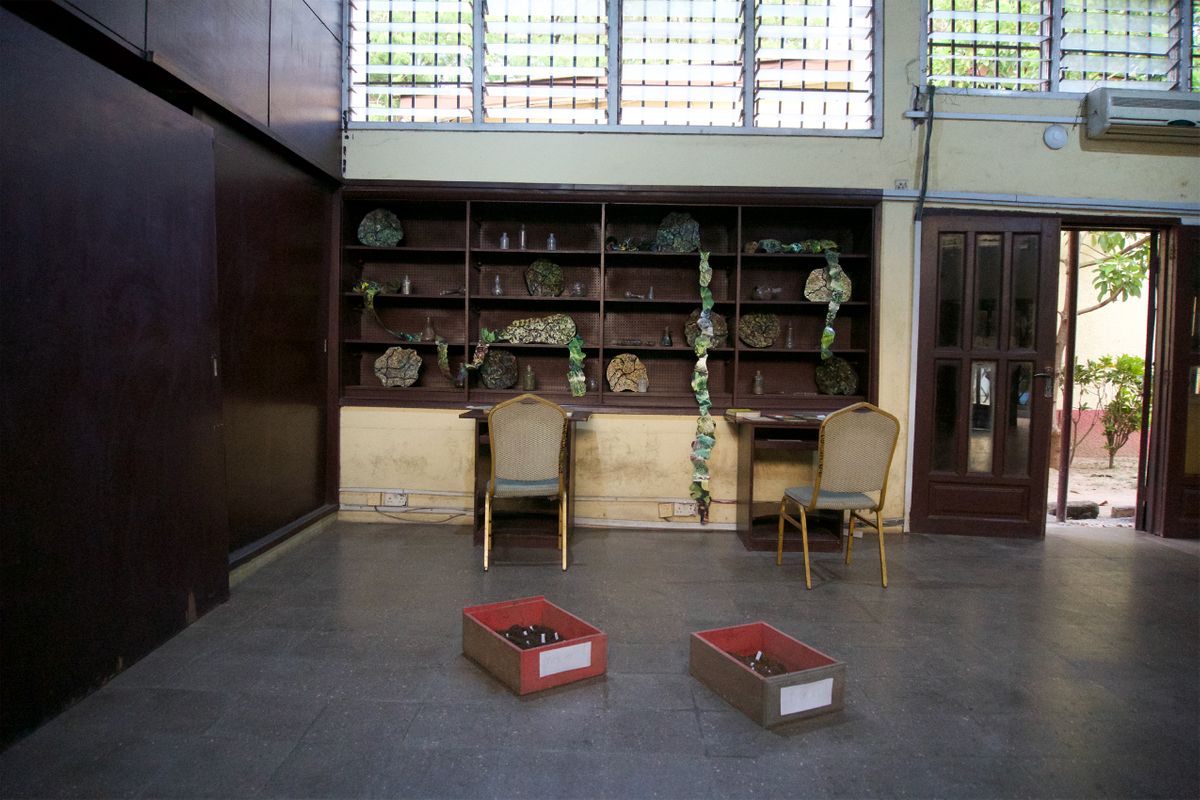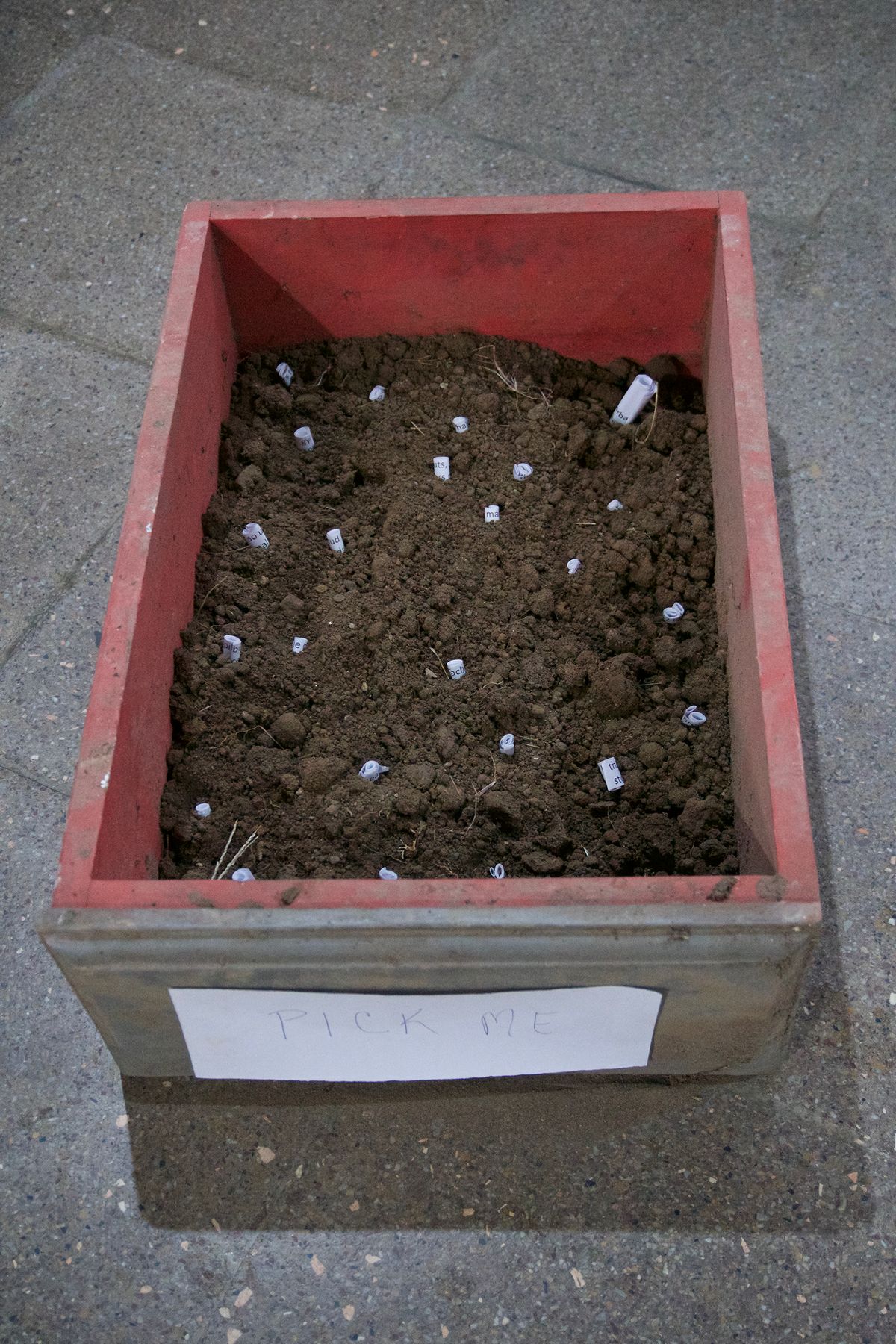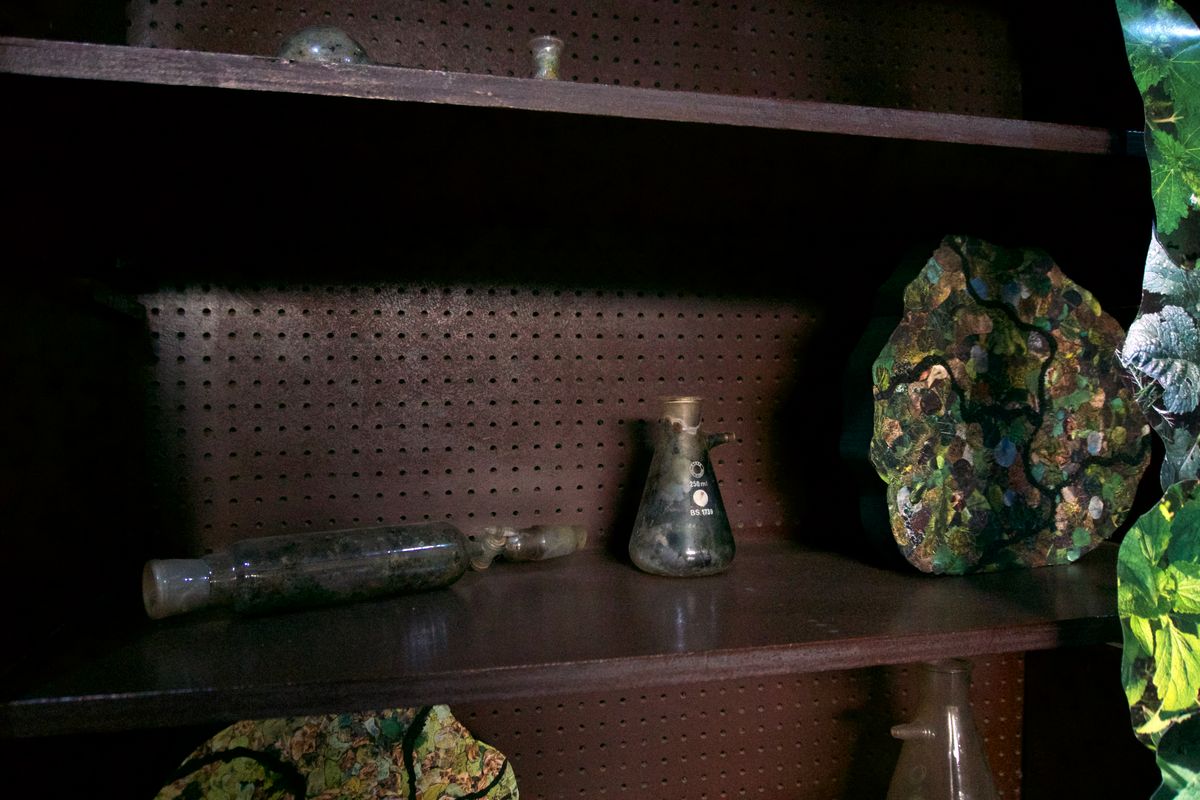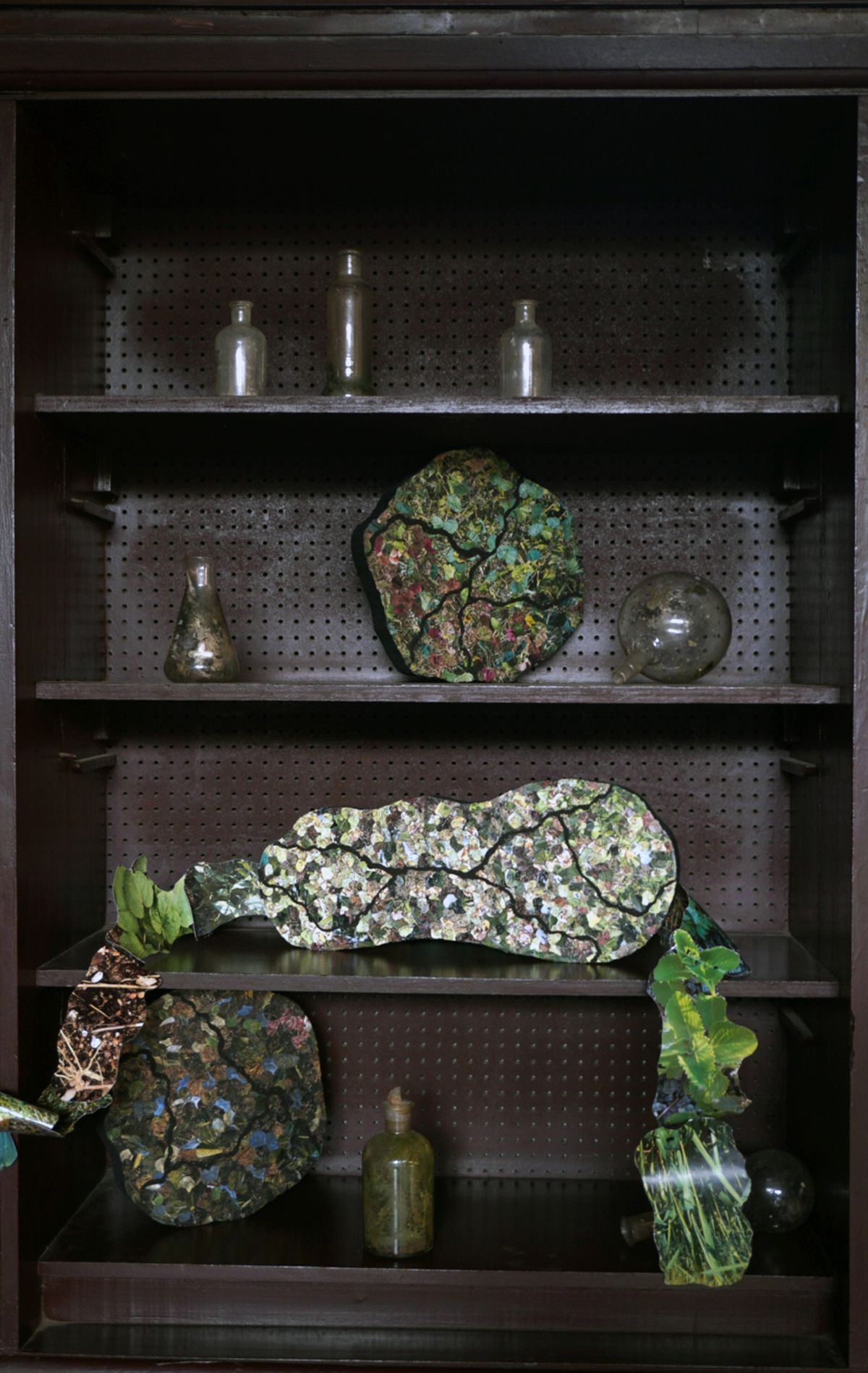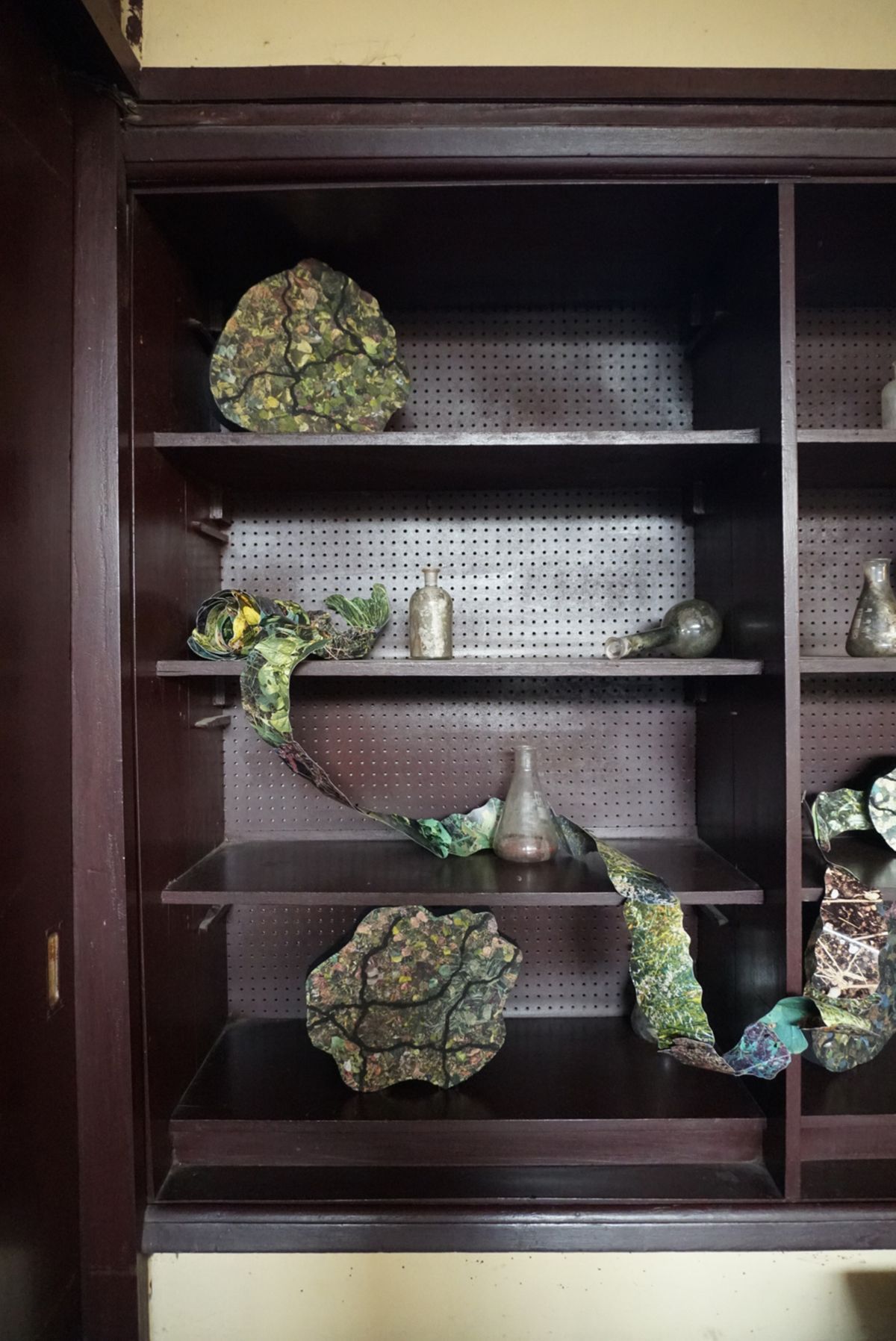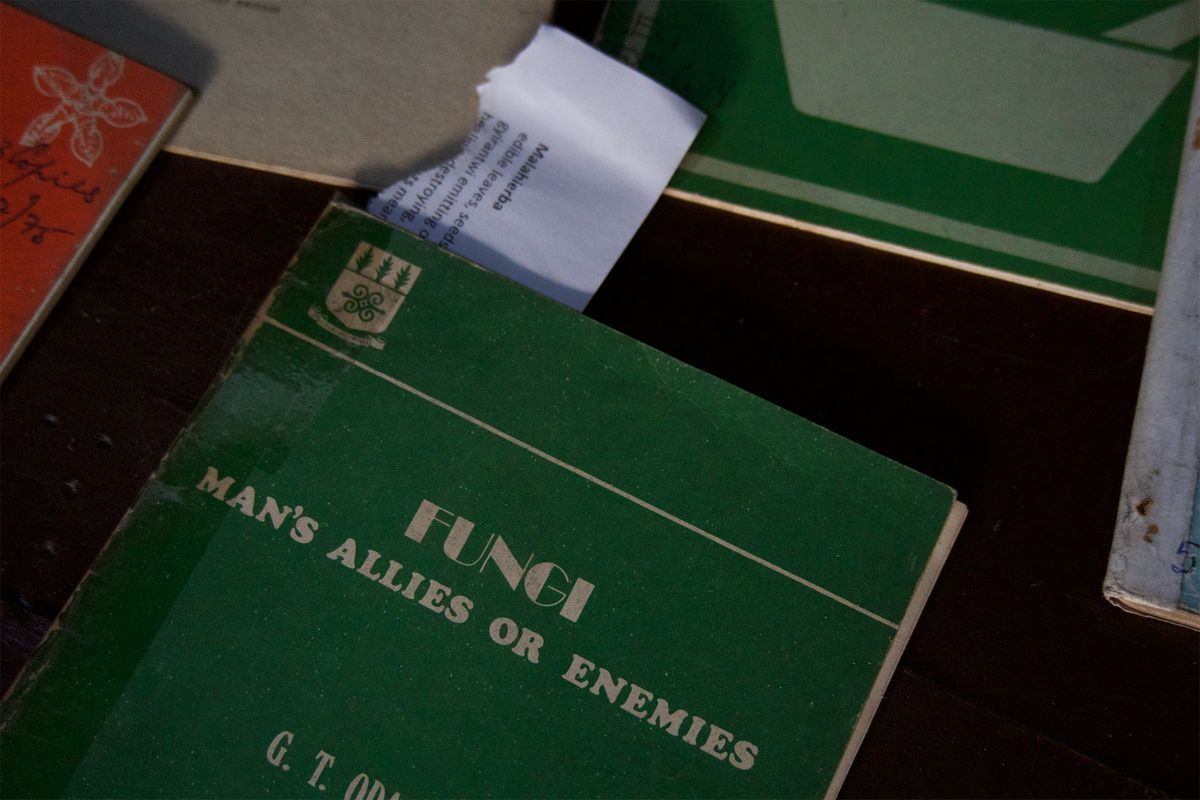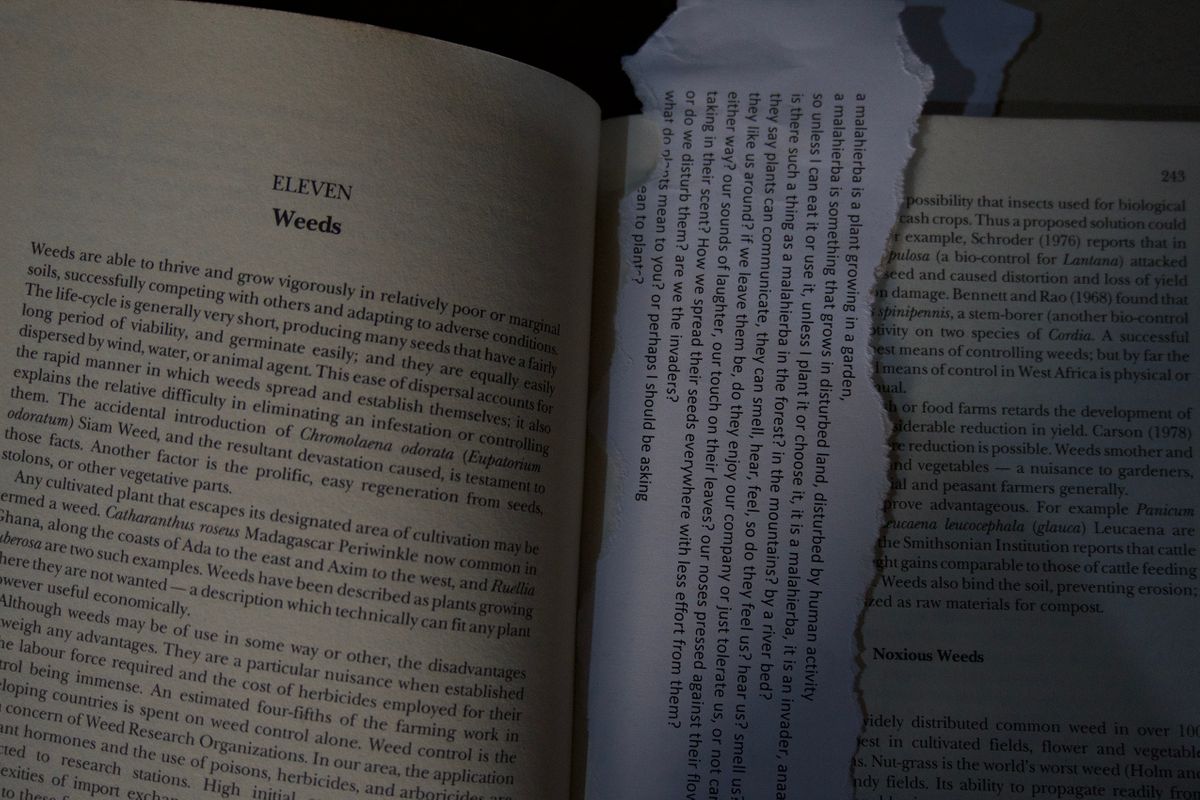First responders: Ecology of the uninvited
The installation “First Responders: Ecology of the uninvited” speaks to the tools we use, the language we employ to label plants—especially those we deem as "weeds"—carrying the weight of colonial history, as does the garden itself. The term "weed," is not just a botanical categorization; it is a judgment, a renaming of plants that are perceived as foreign invaders. Leading to the question “Who has gone into whose garden?” My Kumasi garden, depicted in the photo collages on wood and on paper scrolls, has become a site of both observation and realization. What began as a space I controlled has transformed into one where I recognize that my every action—my movements, my sounds, my smell, even my very presence—are being observed by these plants. In turn, my poem ”Malahierba”, on the garden, is fragmented, and used as bookmarks in books chosen from the George Padmore library, in which the installation is displayed, on the topic of plants in Ghana. On the floor lay two kitchen drawers filled with earth and little paper scrolls with lines from the same poem, inviting viewers to pick a line, to harvest a fragment, and in doing so, to set off a cascade of thoughts and new ideas about our relationship with plants. By tearing the poem into pieces, I create a space for individual interpretation, allowing each person to follow a different thread, to rethink their assumptions, and to reconsider the plants we have labeled "weeds." In this fragmented form, the poem becomes a tool for disruption, leading the reader down an alternate path of thought.
In the end, what we have are clues to old stories—and the possibility of new ones, told from many perspectives, including those of the plants themselves.
